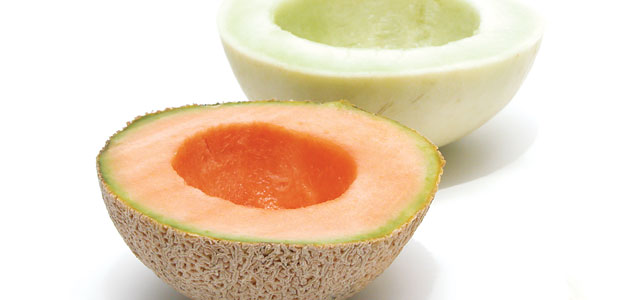Advertisement
A Friend of Vitamin C
Walking through the local mall I spot my friend Amanda in our favourite health food store. She appears to be stocking up on echinacea, but I head straight for the vitamin C; I have the sniffles and I’ve been under a lot of stress lately and vitamin C aids both–and much more. “If you’re trying … Continued

Walking through the local mall I spot my friend Amanda in our favourite health food store. She appears to be stocking up on echinacea, but I head straight for the vitamin C; I have the sniffles and I’ve been under a lot of stress lately and vitamin C aids both–and much more.
“If you’re trying to stop an oncoming cold you should opt for echinacea,” says my lifelong friend. “German researchers recently conducted a study that found colds and flus of echinacea users were both less frequent and less severe than for non-users.”
Amanda’s right. Echinacea is a powerful immune booster and I use it too, but I maintain my hold on the vitamin C. “What qualities does vitamin C have?” Amanda challenges, raising a henna-dyed eyebrow.
Too Many to List
Severe vitamin C deficiency has been known for centuries as the potentially fatal disease scurvy. Vitamin C is an antioxidant that protects our cells against disease-causing free radicals. It helps create collagen, which is found in our ligaments, bones, and blood vessels. Our brains need it too, because it’s essential to form norepinephrine. The right amount of this neurotransmitter prevents lethargy and depression.
But Amanda values experts’ opinions over my assorted facts and friendly advice, so I mention someone whose credentials are impeccable. “Do you know who Linus Pauling was?” I ask.
“Sounds familiar…who?” responds Amanda.
A Vitamin C Pioneer
“After winning the Nobel Prize for Chemistry,” I answer, “Linus Pauling developed vitamin C therapy. He used it to treat everything from colds to mental illness and cancer.”
A lady shopping beside us interrupts: “Didn’t Pauling die of cancer?”
This is a common attack on his credibility. “Yes he did,” I reply. “But he was 93.”
Looking at my bottle of vitamin C, Amanda mulls this over. “Still, he’s only one person. Does anyone today apply his theories?”
Stress and Vitamin C
”Canada’s Dr. Abraham Hoffer, a renowned pioneer in the field of psychiatry and vitamin therapy, uses vitamin C to treat schizophrenia,” I respond. “He’s also spoken about the power of vitamin C to treat viruses, fight cancer, and reduce anxiety.”
Amanda’s blue eyes widen. “That doesn’t make sense. How can vitamin C fight cancer or make me less nervous?”
I relate nutritionist Leslie Beck’s explanation that it really comes down to our adrenal glands: they use a lot of vitamin C when they create the stress hormone cortisol. Beck recommends 500 mg of vitamin C daily. Any more, she says, and your body will only excrete the excess.
“I remember a study on stress and vitamin C that was published in the German journal, Psychopharmacology four years ago,” I continue. “These researchers involved 120 people in public speaking plus mental math problems. Half were given 1,000 mg of vitamin C three times daily while the other half were given none. Those who took the vitamin C showed fewer signs of stress than the control group.”
Amanda nods and reaches for a bottle of vitamin C. Studying the label she says, “You said something about fighting cancer, but I just don’t understand how a common vitamin found in oranges and broccoli can be that powerful.”
Vitamin C’s Cancer Connection
I understand Amanda’s reluctance. After all, studies on vitamin C and cancer have been inconsistent and controversial. “In high doses it appears to be toxic to cancer cells,” I answer. “Last year a laboratory study done at the Maryland-based Institutes of Health administered high doses of intravenous vitamin C into cancer cells. Researchers reported that 50 percent of some cancers and 100 percent of lymphoma cells were killed.”
I wait for Amanda’s reply, but she’s already at the cash register with echinacea in one hand and vitamin C in the other.
Good Vitamin C Sources (vitamin C per 100 g)
Guava – 100 mg
Broccoli, raw – 90 mg
Kiwi fruit – 90 mg
Papaya – 60 mg
Orange – 50 mg
Strawberry – 50 mg
Cauliflower, raw – 40 mg
Melon, cantaloupe – 40 mg
Cabbage, green, raw – 30 mg
Spinach – 30 mg
Tomato – 10 mg




